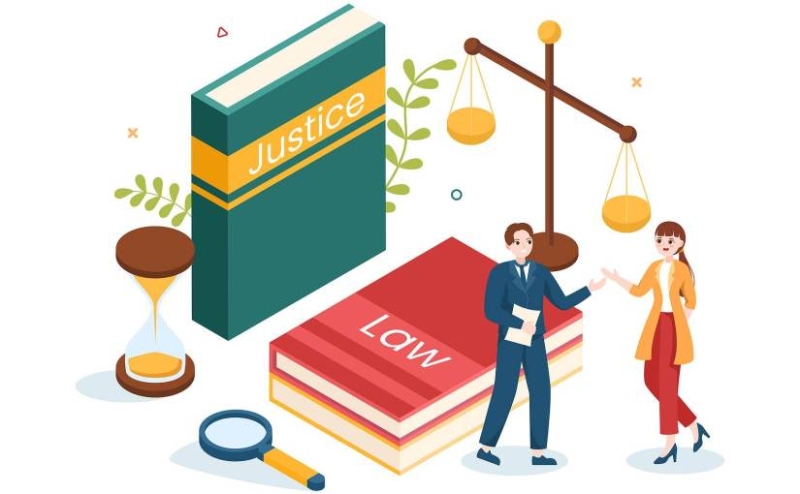
Compensating attorneys effectively is a combination of art and science. A well-structured bonus plan is integral to most law firms’ overall compensation strategy, playing a key role in retaining talent, driving performance, and fostering a collaborative culture. Whether the focus is on individual productivity or firm-wide profitability, bonuses help align attorney performance with the firm’s goals.
This guide provides an overview of various bonus strategies law firms use to compensate attorneys, along with their advantages, disadvantages, and key considerations for selecting the right bonus structure.
Common Bonus Models for Attorneys |
|
| 1.) Defined Amount Over a Threshold | |
| A set dollar amount per billable hour once an attorney surpasses their annual billable hour target. | |
| Strengths :
Simple to calculate and highly effective at incentivizing billable work. |
Limitations:
Focuses solely on hours billed, ignoring non-billable contributions such as client development, mentoring, or firm-related activities. |
| 2.) Percentage of Salary Based on Pass/Fail Criteria. / | |
| A percentage of the attorney’s salary is awarded if they meet certain predefined criteria, such as achieving a billable hour target. | |
| Strengths :
Offers clarity and predictability, ensuring attorneys know exactly what’s required to earn their bonus. |
Limitations:
Does not account for performance beyond the set criteria, potentially overlooking high performers who exceed expectations. |
| 3.) Percentage of Fees Over a Threshold: | |
| Attorneys receive a percentage of the fees they collect or bill once they surpass a set production level. | |
| Strengths :
Encourages attorneys to exceed production goals and maximizes their potential bonus. |
Limitations:
May cause attorneys to prioritize billing over client service quality, as the focus is heavily on numbers. |
| 4.) Predefined Bonus Pool Split Among Eligible Lawyers | |
| The firm allocates a bonus pool and divides it among attorneys, potentially tiered by seniority. | |
| Strengths :
Encourages team collaboration, as everyone works toward a shared reward. |
Limitations:
High performers may feel undervalued if they receive the same bonus as lower performers. |
| 5.) Profitability Bonus | |
| A percentage of profits above a certain threshold (e.g., 15% of individual profitability over $75,000). | |
| Strengths :
Aligns attorney incentives with firm profitability, encouraging both individual performance and a focus on firm health. |
Limitations:
Can be difficult to administer and track profitability on an individual basis. |
| 6.) Profit-Sharing Pool | |
| Attorneys receive a portion of the firm’s profits on a regular schedule (monthly, quarterly, or annually), often tiered by seniority. | |
| Strengths :
Encourages attorneys to exceed production goals and maximizes their potential bonus. |
Limitations:
May cause attorneys to prioritize billing over client service quality, as the focus is heavily on numbers. |
| 7.) Origination Bonus | |
| Attorneys are rewarded for bringing new business into the firm based on origination credit for clients or cases. | |
| Strengths :
Provides a direct incentive for business development, helping to grow the firm’s client base. |
Limitations:
Attorneys may focus too much on client acquisition and not enough on servicing existing clients or mentoring others. |
| 8.) Evaluation with Points-Based Allocation of Bonuses in Tiers | |
| Attorneys earn points based on both quantitative (economic) and qualitative (firm culture, mentoring, client relations) contributions. Bonuses are then awarded in tiers based on point ranges. | |
| Strengths :
Provides a balanced approach that rewards both financial contributions and softer, qualitative metrics. |
Limitations:
Complex to administer and requires the firm to have clearly defined evaluation criteria and consistency in tracking. |
Best Practices for Structuring Attorney Bonuses
When selecting a bonus model, law firm leaders should carefully consider their firm culture, values, and strategic objectives. Here are some best practices for creating a sustainable and motivating bonus system:
- Incorporate Both Economic and Qualitative Performance: While revenue generation is critical, a successful bonus plan should also recognize contributions like mentoring, client satisfaction, and leadership.
- Tailor Bonuses to Career Stages: Junior associates, senior associates, and partners may need different incentives to stay motivated. Consider tiered bonus systems or increasing potential bonus payouts as attorneys advance.
- Incorporate Regular Feedback: Rather than waiting for the annual bonus review, provide regular feedback to help attorneys stay on track and improve throughout the year.
- Use Data-Driven Systems: Consider leveraging technology to streamline bonus calculations. Tools like PerformLaw’s Attorney Relationship Management System (ARMS) can help firms objectively track both billable and qualitative contributions, ensuring fairness and transparency in bonus distribution.
Conclusion
Choosing the right bonus structure for your law firm is not a one-size-fits-all solution. It requires thoughtful consideration of firm goals, attorney performance, and the behaviors you want to incentivize. A well-rounded approach to rewarding economic and qualitative contributions is crucial for long-term success. By combining structured salary increases and performance-driven bonuses, law firms can boost morale, improve retention, and ultimately, drive greater firm profitability.
©2024 PerformLaw by: Brian Kennel of PerformLaw For more news on Bonuses for Attorneys, visit the NLR Labor Employment and Law Office Management sections.




